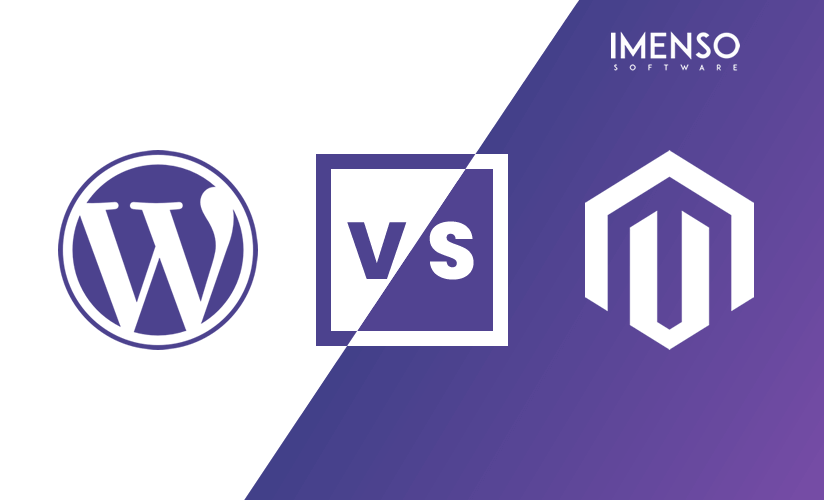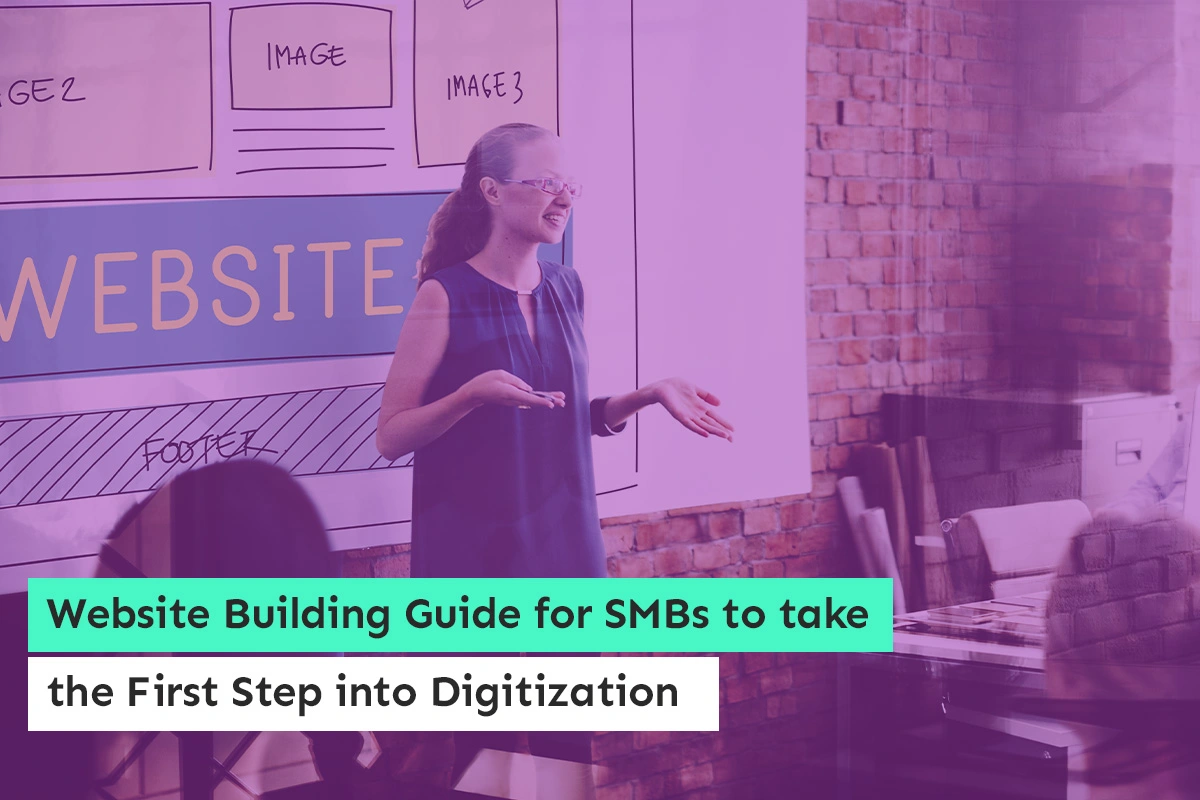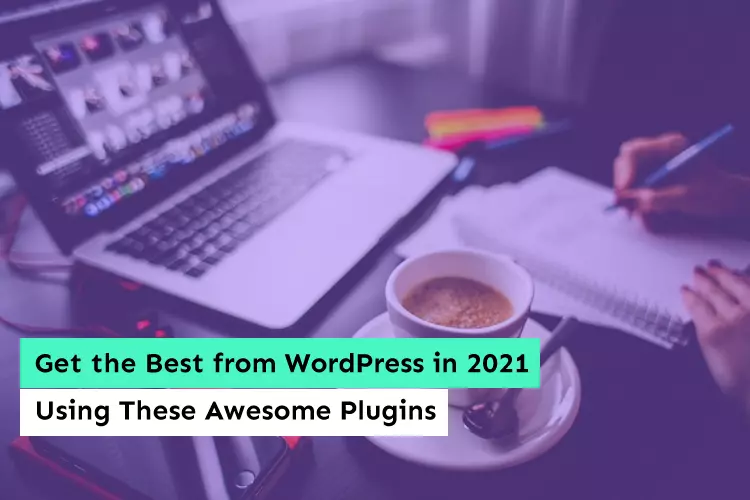WordPress Vs Magento – Which One to Pick For Your Ecommerce Store In 2021

While starting a new eCommerce store, one dilemma for every entrepreneur and SMB owner is, which platform to choose between WordPress and Magento. Even though there is a myriad of eCommerce services available, the final pull is between WordPress and Magento.
But what is it that makes both of these platforms so comparable? On the outside, both the platforms look the same – customizable content management systems, eCommerce platforms, SEO friendly. The real deal is the composition of the two platforms. Magento is specifically built for eCommerce sales and inventory management while WordPress was originally a blogging platform that offers a ton of tools and plugins to create an eCommerce store.
So today we aim to help you get a detailed comparison for the two major eCommerce store building platforms based on the most important characteristics.
Let’s get started.
Ease of Use and Flexibility
Magento is an enterprise-level eCommerce platform with high functionalities. It requires a Magento developer to code a professionally designed website as compared to WordPress where it is pretty simple to get started with an eCommerce store setup. The drag and drop feature of WordPress is beginner-friendly. It even lets you add features such as live chat, contact forms and product catalogues with add on features.
On the other hand for a beginner, Magento needs a lot of coding which might be challenging for no tech folks, as generally small store owners are. To get the best out of Magento, professional help is a must. In terms of usability, it is clear that WordPress is the winner.
Website intention, scope and function

Before deciding between WordPress and Magento, you need to know three things clearly.
- How many products will you sell?
- Do you want to build a multi-vendor store?
- When and how much do you want to scale?
If the answer to all the above questions is affirmative, then Magento is the best pick for you. The platform offers advanced features and functionality to build a huge eCommerce store online. More than 1000 products are easy to handle with Magento premium services. It can easily host a multi-vendor, multi-location and multi-language store as well.
With WordPress also, a decent online store is possible using functions like payment options, tracking orders and shipping management. But WP has a much better performance with content-driven products and services which can be easily integrated into the blog.
In short, if you plan on selling a lot of products with tons of product images, description, and multiple gateways, Magento is the way to go. It is far more stable and strongly built to handle big eCommerce stores.
Security
It is a general misconception that Magento is more secure than WordPress as it has more programming and coding.
But, this is not true.
Both WordPress and Magento are equally secure for eCommerce transactions and in general.
Read the Blog: 7 Ways to improve your WordPress Website Security
This is because the security of your eCommerce store depends on your hosting provider. Both platforms are established and have been through multiple updated in their lifetime. They are both very secure and also provides a lot of security plugins and extensions to increase the security of your website.
To keep hackers and malware attacks away from your customers’ payment info, make sure you timely install all the updates from the platforms. These updates make the website more secure and intuitive to use.
Here both Magento and WordPress are similar.

Design Customization
A fine user experience is vital for eCommerce stores to impress customers and make them feel comfortable online. Website theme plays an important role in that. Another thing is, the kind of theme and design depends upon your product and services.
Both Magento and WordPress offer a lot of themed design options.
Both the platforms have off the shelf and customized themes. The ready made themes are free while it requires a professional eCommerce developer to execute the customized ones.
The best alternative on WordPress is the free Woocommerce theme which is easily customizable. Magento users might want to buy customized themes for the large enterprise-level website. The cost of customized themes varies from $600 to $25000.
Marketing and Content Management
Both WordPress and Magento are content management systems, but WordPress is better for content marketing due to its blogging roots. The structure of WordPress is far more suited for managing a large number of media files and content. Whereas in Magento you have to install a plugin for better blogging support as it is not an inbuilt feature.
Read the Blog: SEO Friendly urls not working in wordpress on IIS Server
The Magical Duo

Comparing the two most popular eCommerce platforms, one thing is very clear that both services have their pros and cons. If WordPress is good for beginners who are just starting their eCommerce journey, Magento offers a high-end solution for scalability and robust website functions.
So which one to pick?
What if we can combine both Magento and WordPress to get the best of both platforms?
It is possible to do so.
Using the Fishpig WordPress Integration Tool for Magento, one can add the WordPress blog in a Magento store and drive unlimited traffic. This is the fastest-growing trend in the eCommerce world. One can easily access their WordPress blog from the backend of Magento.
Read the Blog: 12 Instant Ecommerce Hacks to Boost Your Online Store Sales Today
Fishpig extension is the best solution for the current users of Magento who wants to market according to the customers’ demands through a WordPress blog.
Conclusion
We are confident that Magento is a far better platform to sell products online than WordPress. It does have its downsides of being complex and requires a Magento specialist, which can be costly for a lot of new store owners in 2021.

WordPress is a good alternative and as the platform evolves, we might see more promising eCommerce sales and management features. Until then Magento is the way to go.
If you are looking for a professional Magento developer to fire up your eCommerce sales, we have eCommerce experts who can help you crush that 2021 goal for your online store.
Talk to us today.
Similar Posts

Website Building Guide for SMBs to take the First Step into Digitization
Are you a small-business owner? Do you want to reach more customers? A website with an intuitive interface is essential for small businesses, and a website can help you grow and succeed. Learn more about how a website for a business can help you rise above the rest....

7 Ways to improve your WordPress Website Security
WordPress is the most popular and widely used CMS platform powers nearly one-third of all websites in the world. Some of the key WordPress strengths like flexibility, scalability, customisation and performance have only become better over time. WordPress with frequent updates and with the value additions of a lot of security plugins and robust community […]...

Get the Best from WordPress in 2021 Using These Awesome Plugins
Web development tools and frameworks are aplenty, and the developers are getting spoilt for choice when it comes to picking the apt tool for work. However, amidst these options, some old-time players hold their forte well, and the user base remains intact too....








